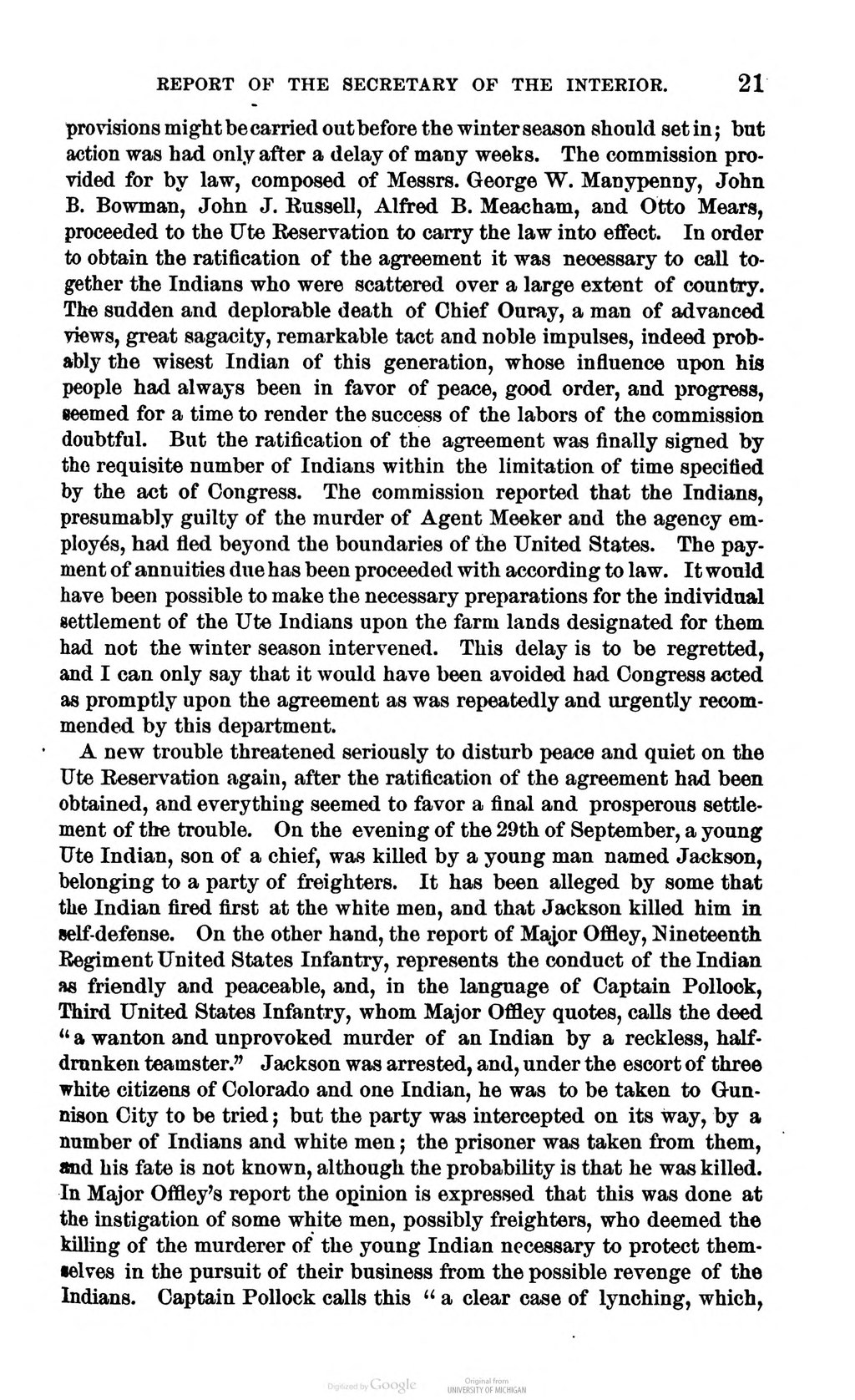provisions might be carried out before the winter season should set in; but action was had only after a delay of many weeks. The commission provided for by law, composed of Messrs. George W. Manypenny, John B. Bowman, John J. Russell, Alfred B. Meacham, and Otto Mears, proceeded to the Ute Reservation to carry the law into effect. In order to obtain the ratification of the agreement it was necessary to call together the Indians who were scattered over a large extent of country. The sudden and deplorable death of Chief Ouray, a man of advanced views, great sagacity, remarkable tact and noble impulses, indeed probably the wisest Indian of this generation, whose influence upon his people had always been in favor of peace, good order, and progress, seemed for a time to render the success of the labors of the commission doubtful. But the ratification of the agreement was finally signed by the requisite number of Indians within the limitation of time specified by the act of Congress. The commission reported that the Indians, presumably guilty of the murder of Agent Meeker and the agency employes, had fled beyond the boundaries of the United States. The payment of annuities due has been proceeded with according to law. It would have been possible to make the necessary preparations for the individual settlement of the Ute Indians upon the farm lands designated for them had not the winter season intervened. This delay is to be regretted, and I can only say that it would have been avoided had Congress acted as promptly upon the agreement as was repeatedly and urgently recommended by this department.
A new trouble threatened seriously to disturb peace and quiet on the Ute Reservation again, after the ratification of the agreement had been obtained, and everything seemed to favor a final and prosperous settlement of the trouble. On the evening of the 29th of September, a young Ute Indian, son of a chief, was killed by a young man named Jackson, belonging to a party of freighters. It has been alleged by some that the Indian fired first at the white men, and that Jackson killed him in self-defense. On the other hand, the report of Major Offley, Nineteenth Regiment United States Infantry, represents the conduct of the Indian as friendly and peaceable, and, in the language of Captain Pollock, Third United States Infantry, whom Major Offley quotes, calls the deed “a wanton and unprovoked murder of an Indian by a reckless, halfdrunken teamster.” Jackson was arrested, and, under the escort of three white citizens of Colorado and one Indian, he was to be taken to Gunnison City to be tried; but the party was intercepted on its way, by a number of Indians and white men; the prisoner was taken from them, and his fate is not known, although the probability is that he was killed. In Major Offley's report the opinion is expressed that this was done at the instigation of some white men, possibly freighters, who deemed the killing of the murderer of the young Indian necessary to protect themselves in the pursuit of their business from the possible revenge of the Indians. Captain Pollock calls this “a clear case of lynching, which,
